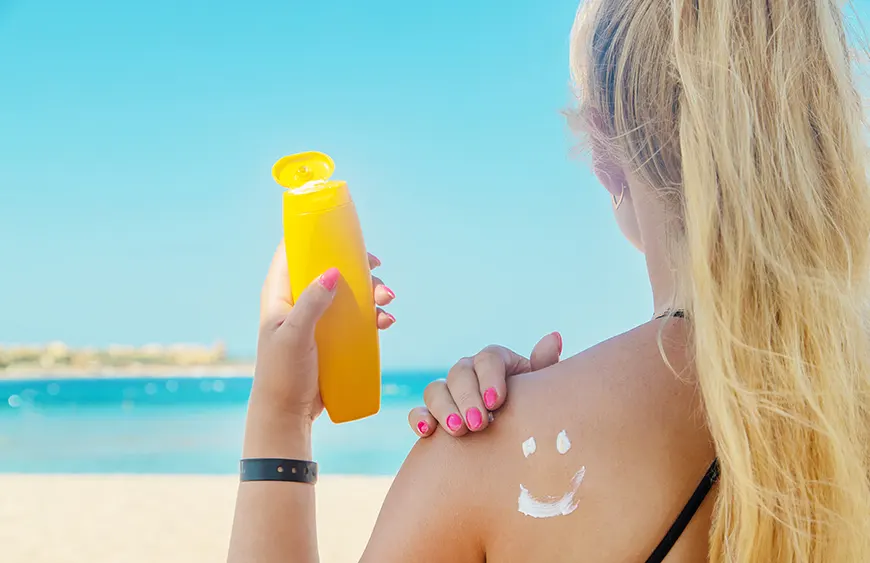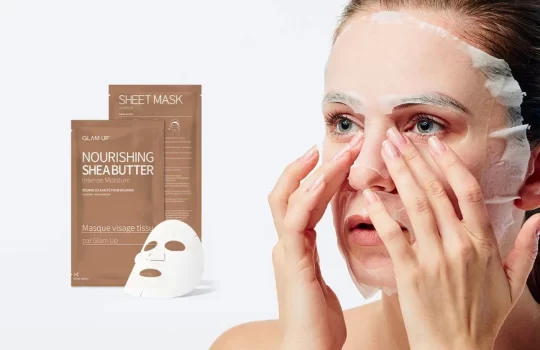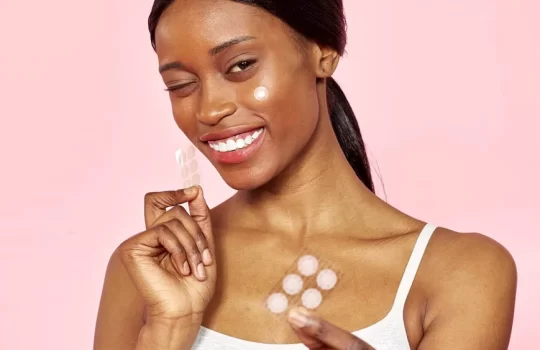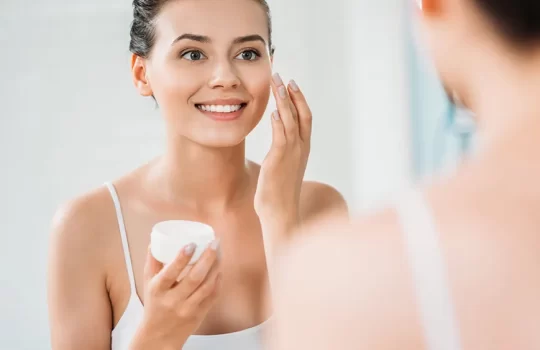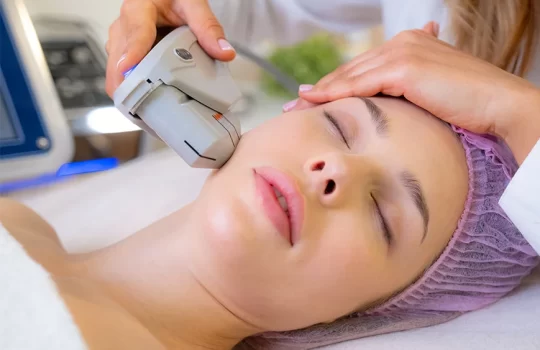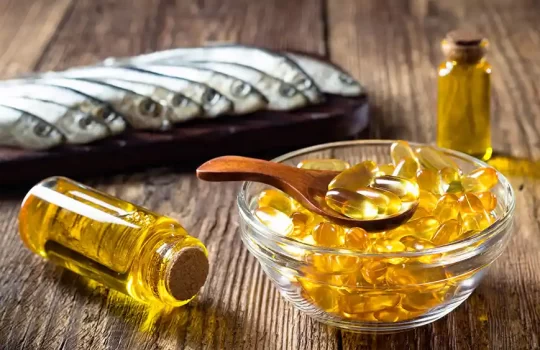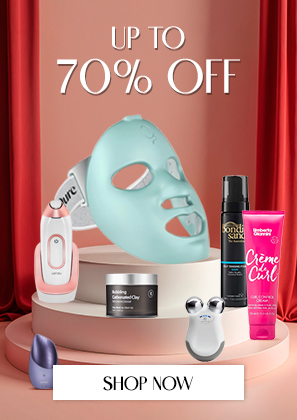Best Sunscreen for Face in UAE is becoming many people’s concern. Sunscreen can make you fit as a fiddle; saving facial skin with the best sunscreen for the face is paramount in the UAE’s intense and sun-drenched climate. Are you wondering why? Sunscreen guards against the damaging effects of UVA and UVB rays, controlling premature aging, sunburn, and possible skin damage.
Due to the intense sunlight and high temperatures, regular use of sunscreen in the UAE becomes not just a step in your beauty routine but a crucial step in maintaining the health and elasticity of your skin.
Sunscreen Essentials in the UAE
Whether stepping through the lively streets of the UAE or spending time outdoors, including sunscreen in your daily skincare routine is a bold measure for long-term, healthy skin. Sunscreen can make you fit as a fiddle; saving facial skin with the best sunscreen for the face is paramount in the UAE’s intense and sun-drenched climate.
Why Sunscreen?
Sunscreen guards against the damaging effects of UVA and UVB rays, controlling premature aging, sunburn, and possible skin damage. It is no secret that intense sunlight and high temperatures can drastically affect your skin. Everyday use of sunscreen in the United Arab Emirates is not just a step in your beauty routine; it is a crucial step in sustaining the soundness and health of your skin.
Which sunscreen is best for UAE weather?
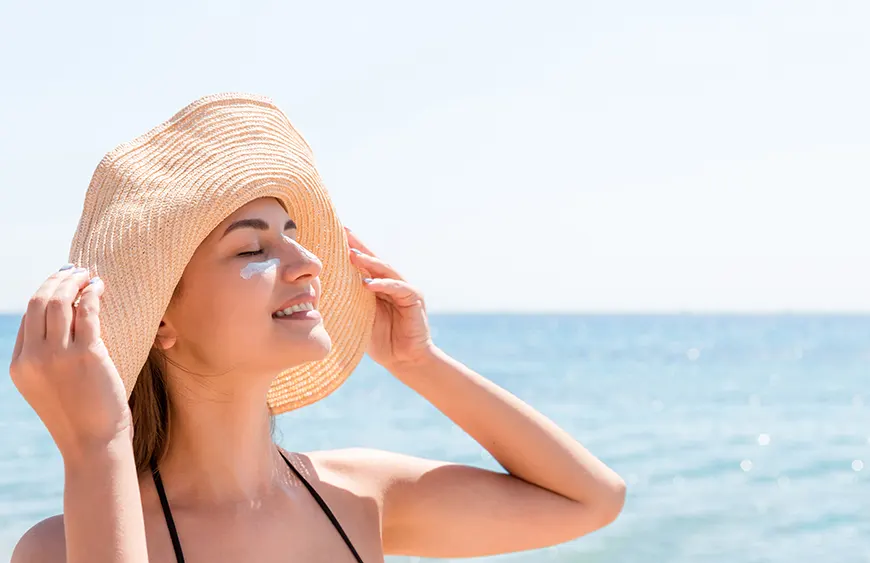
Sunscreen with UV protection is the best sunscreen for the face in the UAE. Highlighting the importance of protection against both UVA and UVB rays is crucial for sustaining optimal skin health, especially in the UAE’s harsh climate.
More clarification:
- UVA rays penetrate the skin deeply and are associated with premature aging, causing wrinkles and fine lines. Additionally, prolonged exposure to UVA rays can contribute to developing skin conditions and decrease skin elasticity.
- UVB rays are responsible for sunburn and can lead to more immediate visible damage. These rays can cause redness and peeling and contribute to the development of skin cancers.
Which sunscreen is best for UAE weather?
- Providing broad-spectrum protection ensures defense against UVA and UVB rays.
- Offering comprehensive coverage against the adverse effects of sun exposure.
This dual protection is particularly essential in the UAE, where the intensity of sunlight demands a robust defense mechanism to safeguard the skin from both short-term and long-term damage.
What is SPF?
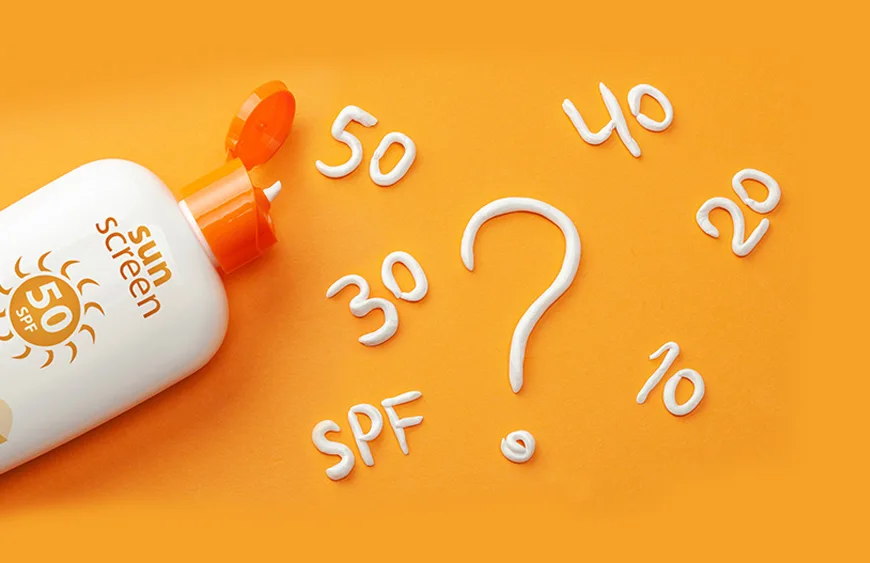
The Sun Protection Factor (SPF) measures a sunscreen’s effectiveness in protecting the skin from harmful UVB rays. The SPF indicates how long it would take for the skin to burn with the sunscreen compared to without it.
How does it work, and for how long?
For example, if you usually burn after 10 minutes of sun exposure without sunscreen, an SPF 30 would theoretically allow you to stay in the sun 30 times longer (300 minutes) without burning. However, it’s important to note that this is a rough estimate, and factors like sweating, swimming, and reapplication can affect the actual protection.
Is SPF 30 or 50 better for daily use?
In the UAE’s intense sunlight and high temperatures, it is advisable to use sunscreen with a relatively high SPF. SPF 30 is often considered a minimum, but many experts recommend using SPF 50 or higher for more excellent protection, especially in regions with solid and prolonged sun exposure.
Drawing on the challenging conditions in the UAE, this higher SPF provides an extra margin of safety, helping to prevent sunburn and premature aging and reducing the risk of skin cancer. Choose a broad-spectrum sunscreen with a high SPF to ensure comprehensive protection against UVA and UVB rays in the challenging climate of the UAE.
Can I use SPF 50 every day?
Yes, using sunscreen with SPF 50 daily in the UAE is a good idea, especially considering the region’s intense sunlight and high temperatures. Protecting your skin from the harsh UV rays is essential to prevent sunburn and reduce the risk of long-term skin damage. Apply the sunscreen generously and reapply as needed, especially if you spend extended periods outdoors. Additionally, consider other sun protection measures, such as wearing protective clothing and seeking shade when possible.
Is it safe to use SPF every day?
The answer is yes, and it is generally safe to use sunblock every day. Daily sun protection is crucial for maintaining skin health and preventing long-term damage from exposure to the sun’s harmful UV rays. Even on cloudy days or during the winter months, UV rays can still penetrate the atmosphere and affect your skin.
How to choose?
Pick a broad-spectrum sunscreen with a fine SPF (Sun Protection Factor) for your skin type and the sun exposure you expect. Using sunblock every morning, even when you do not plan to spend much time outdoors, can help save your skin from early aging, sunburn, and the risk of skin cancer.
Water-Resistance Formulas
In the hot and humid weather of the UAE, the importance of water-resistant sunscreen formulas cannot be exaggerated. The probability of sweating and high temperatures makes it the best sunscreen for the face in UAE.
- Water-resistant formulas adhere better to the skin, even after sweat or water exposure.
- Individuals living an active lifestyle or spending time outdoors, where sweating is common, are highly advised to use water-resistance formulas.
- Water-resistant feature ensures that the sunscreen remains effective and provides continuous protection, reducing the need for frequent reapplication after sweating or water activities.
- Humid climate in the UAE can cause traditional sunscreens to wear off more quickly, making water-resistant options essential for long-lasting coverage.
Ingredients to Look For in a SunScreen
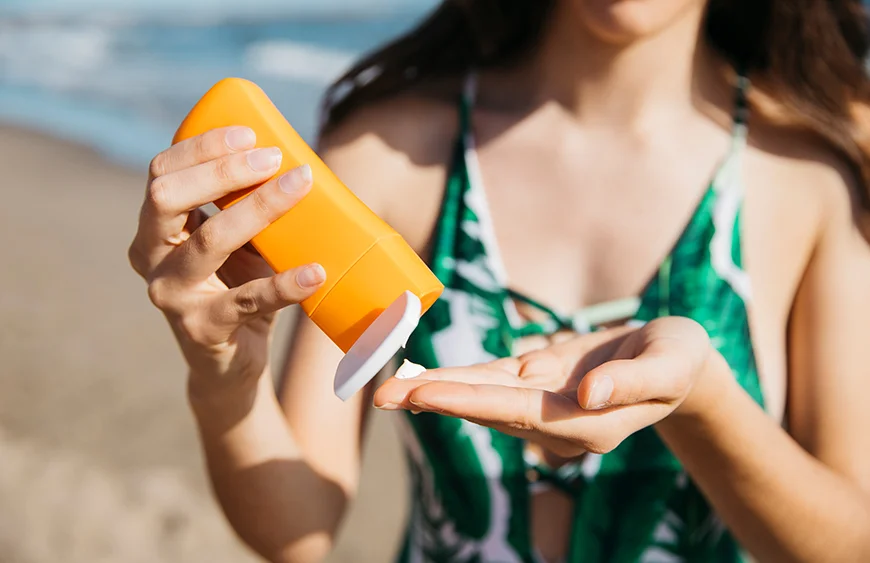
Adequate sun protection hinges on the inclusion of critical ingredients in sunscreen formulations, such as:
A piece of advice for individuals with sensitive skin living in the UAE:
- Heat in the UAE can exacerbate skin sensitivity, making ingredient selection in sunscreens crucial. Opting for sunscreens with gentle, non-irritating components is paramount.
- Look for formulations with added antioxidants like vitamin E and green tea extract, as they can help neutralize free radicals generated by sun exposure, providing an extra layer of defense for sensitive skin.
- Fragrance-free and hypoallergenic sunscreens are also beneficial, minimizing the risk of irritation in response to heat and sun exposure so that individuals with sensitive skin can enjoy adequate sun protection without compromising their skin’s health.
Which brand of sunscreen is best? Which sunscreen is best in UAE?
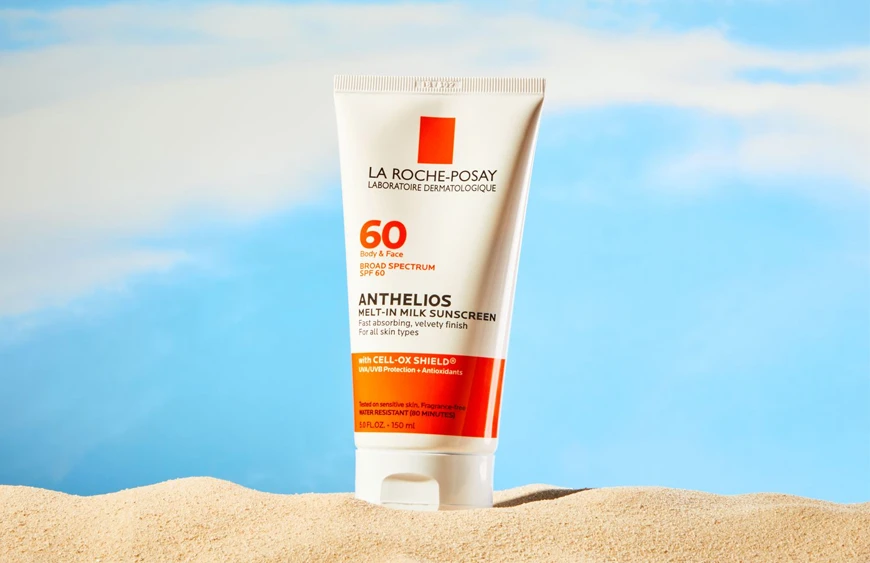
In the various sunscreen product markets in the UAE, several stand out for their usefulness and compatibility with the region’s unique climate. One notable option is the La Roche-Posay Anthelios Melt-in Milk Sunscreen SPF 60. Recognized for its broad-spectrum protection and water resistance, this sunscreen is especially suitable for the hot and humid conditions of the UAE. Its weightless, non-greasy formula makes it comfortable for daily use, providing a high defense against UVA and UVB rays.
Considering other options
Another top choice is the Neutrogena Ultra Sheer Dry-Touch Sunscreen SPF 100+. With its high SPF rating and dry-touch technology, this sunscreen delivers an influential shield against sun damage while maintaining a weightless feel. The non-comedogenic formula is appropriate for different skin types, and its long-lasting effectiveness makes it a perfect option for people navigating the intense sunlight and high temperatures in the UAE.
How to apply Sunscreen?
Applying sunscreen correctly is essential for maximum effectiveness, especially in the intense sunlight of the UAE. Here are some critical tips for application and reapplication:
Use a generous amount
Apply 30 Minutes Before Sun Exposure
Cover All Exposed Skin
Re-apply Every Two Hours
Re-apply After Swimming or Sweating
Use Sunscreen Every Day
Check Expiry Dates:
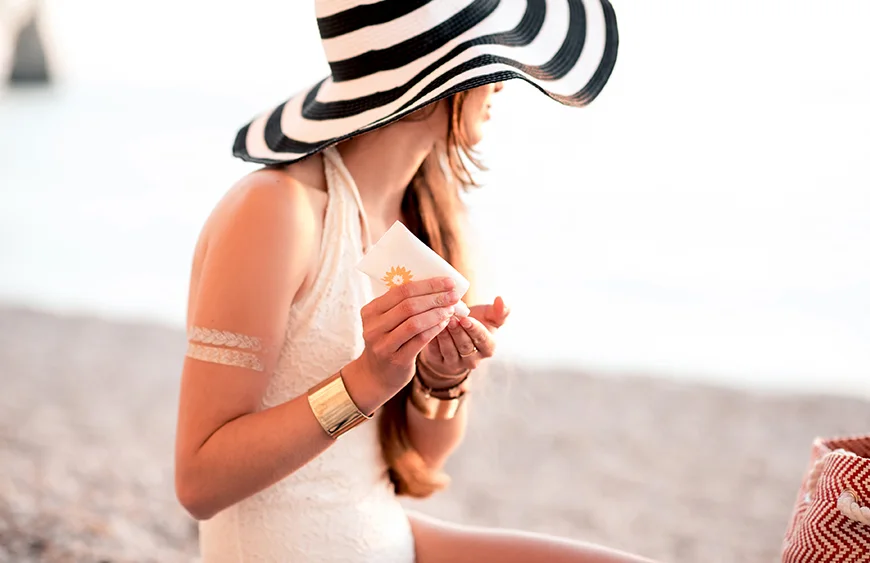
Following these tips, you can apply sunscreen correctly and reapply as needed, maintaining optimal protection against the harsh sun in the UAE.
Why does my face get dark after sunscreen?
The darkening of the skin after using sunscreen could be due to several reasons, and it’s essential to consider various factors. Here are some possibilities:
Allergic reaction
Incorrect application
Sunscreen ingredients
Phototoxicity
Sun exposure
It’s advisable to choose a sunscreen suitable for your skin type, apply it generously, and reapply as needed, especially after swimming or sweating. If you continue to experience skin darkening despite these precautions, it’s recommended to consult with a dermatologist to determine the specific cause and find an appropriate solution.
Can I apply sunscreen without moisturizer?
The darkening of the skin after using sunscreen could be due to several reasons, and it’s essential to consider various factors. Here are some possibilities:
Hydration:
Smooth application:
Additional benefits:
If you have a separate moisturizer and sunscreen, apply the moisturizer first and then follow up with the sunscreen. However, if you use a combination product that includes moisturizer and sunscreen, you can use it as a two-in-one step.
Remember to choose a broad-spectrum sunscreen with at least SPF 30 and apply it generously to all exposed skin, reapplying as needed, especially if you’ve been sweating or swimming.
Which Sunscreen is best for oily skin
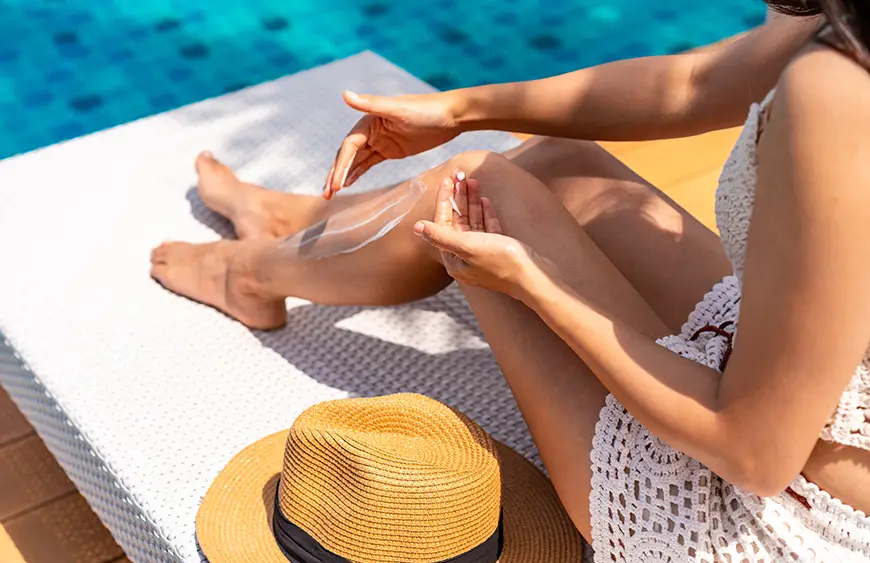
For individuals with oily skin, choosing a sunscreen that provides adequate sun protection without exacerbating oiliness or causing breakouts is essential. Look for sunscreens with the following characteristics:
1. Oil-Free Formulas:
Choose sunscreens labelled as “oil-free” or “non-comedogenic” to avoid clogging pores and causing acne.
2. Gel-Based or Water-Based Sunscreens:
These formulations are lighter and less greasy than cream-based sunscreens, making them more suitable for oily skin.
3. Matte Finish:
Sunscreens with a matte finish can help control excess shine and provide a more natural appearance to oily skin.
4. SPF 30 or Higher:
Select a broad-spectrum sunscreen with at least SPF 30 to ensure adequate protection against UVA and UVB rays.
5. Ingredients like zinc oxide or titanium dioxide:
These mineral-based ingredients can benefit oily and sensitive skin types.
6. Non-comedogenic:
Look for sunscreens labelled non-comedogenic, meaning they are less likely to cause pore blockages and breakouts.
Here are some popular sunscreen brands known for formulations suitable for oily skin:
La Roche-Posay Anthelios Clear Skin Dry Touch Sunscreen
Neutrogena Hydro Boost Water Gel Lotion SPF 30/50
EltaMD UV Clear Broad Spectrum SPF 46
Cetaphil Pro Oil Absorbing Moisturizer SPF 30
It’s essential to mention that people’s skin types may vary, so trying different products to find the one that best suits your needs may be advantageous. Additionally, consider consulting with a dermatologist for personalized recommendations based on your skin’s features.
What are the top 5 sunscreens or the best sunscreen for face in the UAE?
Five sunscreen brands were commonly recommended:
La Roche-Posay Anthelios Melt-in Milk Sunscreen SPF 60
Neutrogena Ultra Sheer Dry-Touch Sunscreen SPF 100
EltaMD UV Clear Broad-Spectrum SPF 46
Biore UV Aqua Rich Watery Essence SPF 50+
CeraVe Hydrating Mineral Sunscreen SPF 30
Consider your skin type, specific skin concerns, and preferences when choosing a sunscreen. It’s also a good idea to consult a dermatologist for personalized recommendations based on your needs.
Frequently asked questions
Q: Can I apply sunscreen directly on the face?
- You can safely apply sunscreen to your face for adequate sun protection.
- Applying sunscreen directly on the face is recommended for shielding your skin from harmful UV rays.
Q: What is best sunscreen for face in UAE that dermatologists recommend?
- Dermatologists often recommend “EltaMD UV Clear Broad-Spectrum SPF 46” for effective and gentle facial sun protection.
- La Roche-Posay Anthelios Melt-in Milk Sunscreen SPF 60″ is a popular choice among dermatologists for safeguarding the face against harmful UV rays.
Q: How much SPF is needed in the best sunscreen for the face in the UAE?
- The recommended SPF for adequate sun protection typically ranges between SPF 30 and 50, depending on your skin type and sun exposure.
- Choosing a sunscreen with an SPF of 30 to 50 is generally considered sufficient for daily use, offering a balanced balance between protection and comfort.
In conclusion, the significance of sunscreen cannot be overstated, especially in the unique climate of the UAE. As someone residing in this region, where the sun’s intensity is particularly potent, safeguarding your skin becomes imperative. The correlation between prolonged sun exposure and skin damage is well-established, and adopting a consistent sunscreen regimen is a proactive step toward maintaining skin health.
